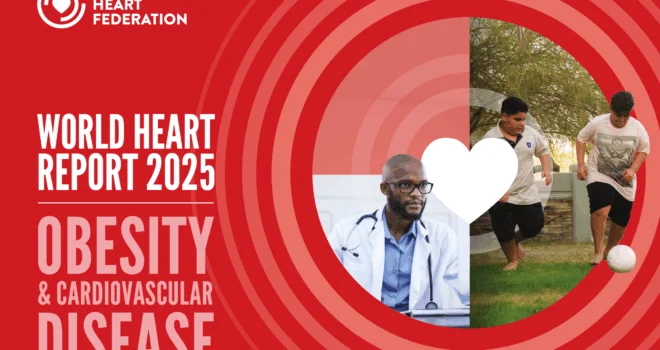The ECHO report highlights that the greatest risk to progress on childhood obesity is that governments and other actors will fail to take ownership, leadership and the necessary actions.
Obesity in children is associated with increased risk of premature onset of heart disease, which makes preventing childhood obesity a key approach to the primary prevention of heart disease.
The World Heart Federation (WHF) works with governments, the WHO and other stakeholders to halt global obesity rates in children, adolescents and adults. Professor Srinath Reddy (past WHF President) is an ECHO Commissioner. Both he and WHF’s advocacy team, working closely with our members, have been instrumental in drafting the WHO ECHO report. In particular we have provided specific recommendations around: the role of civil society; contextualization of the issue and related policies; and clarifying the roles of stakeholders.
The final report includes:
•Guiding principles for addressing childhood obesity
• Key elements and interventions to tackling childhood obesity
• Proposed policy recommendations, for example:
– Impose an effective tax on sugar-sweetened non-alcoholic beverages
– Optimize maternal health before conception and during pregnancy by diagnosing and managing hyperglycaemia and hypertension
– Strengthen the physical activity environments (by ensuring physical activity is incorporated into the daily routine) and curriculum in formal childcare settings or institutions
WHF contributions to ending childhood obesity
At the WHF, we already focus on childhood obesity prevention through a number of projects implemented with the support of our members and partners. Towards the end of last year, this involved campaigning to maintain Mexico’s tax on sugary drinks and junk food. After a public outcry and many organizations, including WHF, lending their support via public letter, on 29 October, the Mexican Congress voted both in the Senate and the lower House to maintain a 10% excise tax on all sugar-sweetened beverages.
In partnership with UEFA, we have: launched the ‘Children in the City’ campaign, with physical activity pilots in Romania and Spain aimed at 7-12 year olds in urban areas; run the ‘Make a healthy heart your goal’ project to encourage women and girls to be physically active; and launched an ‘Eat for Goals’ mobile phone application, which is targeted at children and has already achieved more than 29,000 downloads.
Using our World Heart Day (29 September) platform, WHF advocacy continues to raise awareness of the importance of creating heart healthy environments that enable everyone, everywhere to make healthy heart choices.


